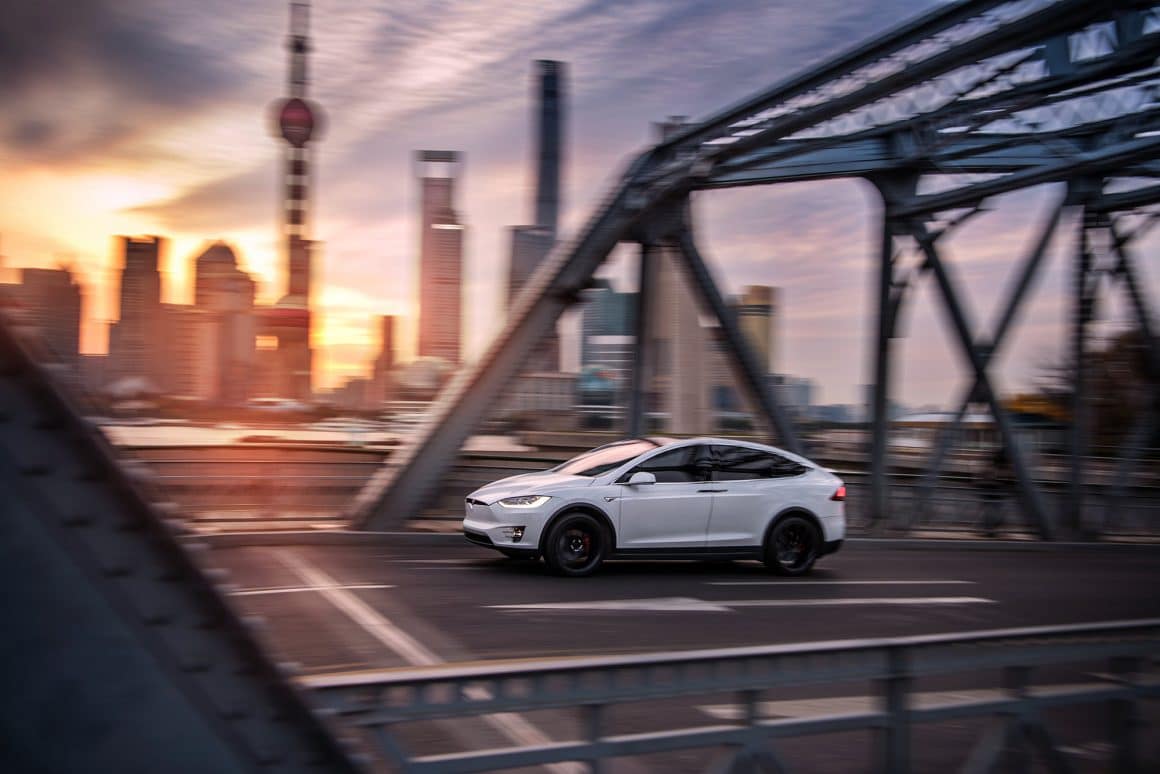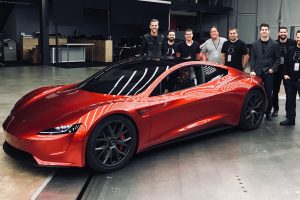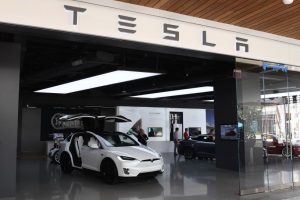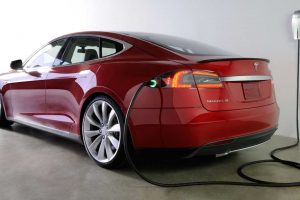Ever since Tesla’s founding, pundits (and not only pundits, but some of the company’s founders) have assumed that, once the legacy automakers got serious about selling EVs, they would bury (or acquire) the California upstart. “Thanks for showing us the way, Elon, we’ll take it from here.”
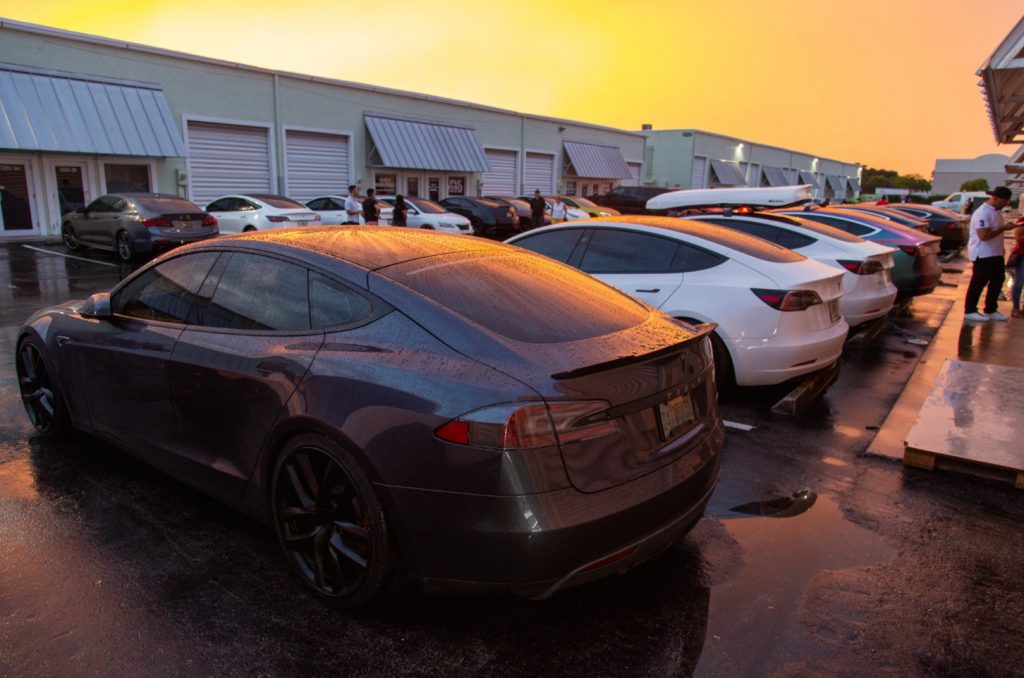
I witnessed a comical manifestation of this in 2018 when I attended a press event for the launch of the Audi e-tron. I had breakfast with a group of Audi dealers, and one of them mused about how interesting it would be to see Tesla fade away and fold over the next couple of years, now that the big boys had gotten into the game. I had to restrain myself from laughing aloud at the time, and now…I’ll just say that that’s not the way things worked out.
As I and other EVangelists have written so many times, the reason this Goliath-beats-David story isn’t going to come true has little to do with ability, and everything to do with motivation. The e-tron is a fine car, and so are the Porsche Taycan and Mustang Mach-E that I recently tested—but these companies are committed to a slow and orderly transition that allows them to preserve their ICE assets, and Tesla is committed to making every car on the planet electric, even if most of them aren’t Teslas.
Recently, a more modern version of the Tesla-fades-away scenario has been making the rounds. The premise: okay, we know that legacy Big Auto will never beat Tesla, but nimble startups such as Rivian and Lucid just might.
Zac Cataldo, the producer of the Now You Know podcast, is extremely knowledgeable about trends in the EV industry. In a recent chat, we talked about the Myth of the Tesla Killers. “We’ve known for years that that’s just not true,” Zac told me. “Those companies [Big Auto] are not innovative, so they’re not able to actually make a car that’s anything more than a compliance car. The only real competitors are going to come from outside. They’re going to come from companies—perhaps Lucid, or perhaps Rivian—that are looking at the problem from a different angle.”
Zac is excited about the upcoming Rivian R1T—he has one on order—but it sounds like he’s even more excited about Tesla’s Cybertruck.
As Zac points out, it’s going to be fascinating to follow the new wave of EV startups over the next couple of years, because they will be the first viable competition that Tesla has faced. Like Tesla, these companies are dedicated to building EVs, and they don’t have legacy product lines or stranded assets to defend. However, some in the media have gone a bridge farther, predicting that the rise of Rivian and Lucid is a threat to Tesla. As I write this, TSLA stock has had a rough week, dropping in value by double digits, and some pundits are pontificating that the reason is Rivian’s announcement that it will go public later this year.
Will some buyers who were looking at a Tesla opt for a Rivian (or a Lucid, an Aptera or an Xpeng) instead? Probably. Does that mean that the advent of these new automakers is a threat to Tesla’s sales? Just the opposite—it’s a huge opportunity. Every time another automaker announces a new model, or increased investment in its EV program, Elon Musk tweets out his congratulations, and this is not out of bravado. It’s because, as he has said several times, Tesla’s true competition is not other EVs—it’s the millions of gas-powered cars that are still rolling off the lines.
The idea that more entrants to the EV segment will dilute Tesla’s sales is based on the false idea that there are two separate markets, one for EVs and one for gas-burners. In other words (as legacy automakers have often implied in their marketing materials), there’s a certain demographic that buys EVs, and nobody outside this group of kale-munchers ever will. This is nonsense. Simply put, as EVs get better, and as more people become aware of EVs, more people will buy EVs. Their buddies will check out their cool new rides, and a virtuous circle will start spinning up its magic.
A few years from now, owning a gas car will be like owning a horse, as Elon Musk recently quipped. In the meantime, every compelling new EV that comes on the market will expand the pool of EV-buyers, and some of them will choose Teslas.
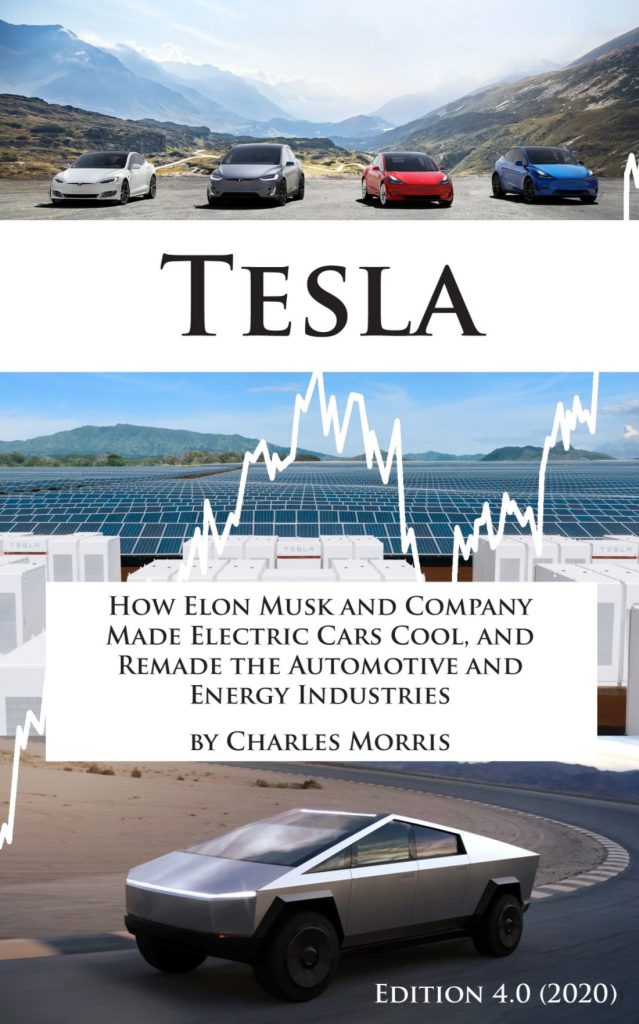
To illustrate what I’m talking about, allow me to tell a little story from my personal experience. In 2014, I wrote a book about Tesla, and self-published it as an e-book (and revised and updated it in 2020). For a surprising length of time, mine was the only book about Tesla on the market. I scored a steady stream of sales, although my numbers would have been considered a rounding error by any major publisher. In 2015, a well-known author named Ashlee Vance released an excellent biography of Elon Musk. To compare his book to mine would be like comparing a Model S Plaid to an EV1. His was a slick hardback book that was reviewed in outlets like the New York Times, and sold at airport bookstores all over the country. Uh-oh! The big kids are here! Bad news for little self-published Charles Morris, right?
Wrong. Shortly after his book came out, my sales took off like a rocket, and for about three months, I enjoyed the highest sales I’ve ever had. He probably sold (and continues to sell) more books in an hour than I do in a year, but his entry into the market didn’t hurt my sales—it vastly increased them. Many readers bought both books. Now obviously, this little parable isn’t directly comparable to the EV market—few buyers are going to like their EV so much that they buy a second one (some just might), and unlike your favorite EV journalist, Tesla can’t really be considered an underdog at this juncture. But the point is that, in a market that’s just beginning to develop, the entry of more competitors doesn’t slice up a finite pie into smaller pieces—it makes the pie bigger.
The e-mobility pie is still tiny. In the US, EVs currently represent less than 2% of total auto sales, and even in Europe and China, they still account for a fraction of the market. Considering everything that’s going on—rapidly improving technology, falling prices, tightening regulation—it’s all but certain that the pie is going to expand rapidly over the next decade, and there’s plenty of opportunity for Tesla, for startup automakers and for legacy brands that can be fast followers. The only ones who’ll end up with no pie on their plates will be those who refused to come to the kitchen when the dinner bell was rung.
Original Publication by Charles Morris at EVANNEX.

